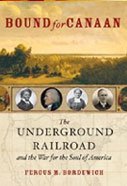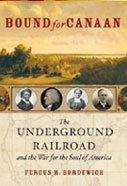Heading South!
This is my last post until May 3 (I'm guessing). I'm very excited that Laurie and I will be traveling south to Pennsylvania (to visit my mother) and then on to North Carolina, to visit the one and only Nate. What's more, our path runs very near the home of Milton Stanley of Transforming Sermons, so it looks like we'll be having a brief blogger meet-up there! Woo-hoo! Finally, we'll be spending a few days at Merlefest, where we will see, among many other outrageously talented players and performers, the likes of EmmyLou Harris, Bela Fleck, John Prine, Nickel Creek, and Gillian Welch! Double woo-hoo!
I said yesterday that I thought I might be undergoing a kind of reformation in my spirit. All that I really desire for my life is that I represent the Gospel with freedom and joy on an every-day basis. You've heard the metaphor of the camel's nose under the tent? The idea is, once the camel gets its nose under, the rest is soon to follow. Well, I want to be the camel's nose under the tent of this world (my little day-to-day portion of this world, anyway). It's a Gospel-camel, you see, and when I interact with people around me who are, to their unbeknownst danger, citizens of this world, I want to be that impossible-to-miss snout of one honking great camel called the Kingdom of God! How's that for a flamboyant metaphor!
So I leave you with this. Let's be as bold and stubborn and as recklessly unstoppable about the love of God as that camel. See you in a coupla weeks.

Shalom!




